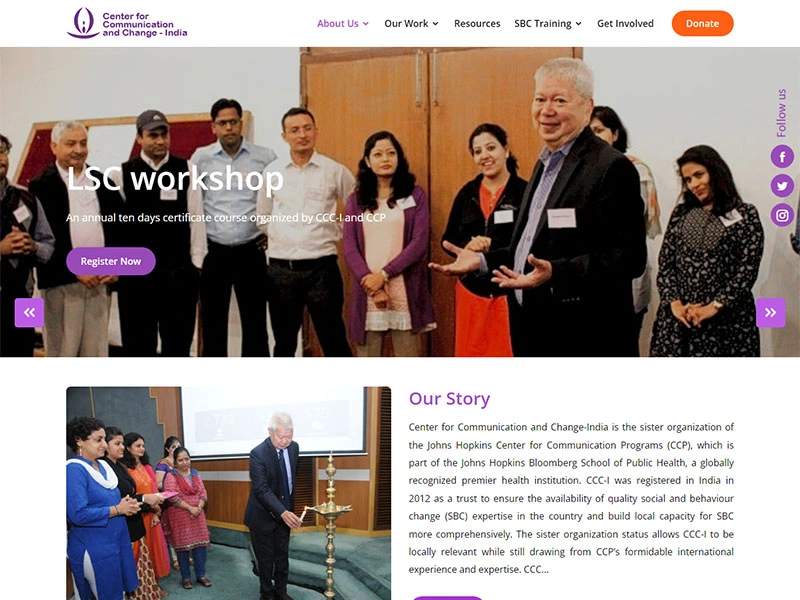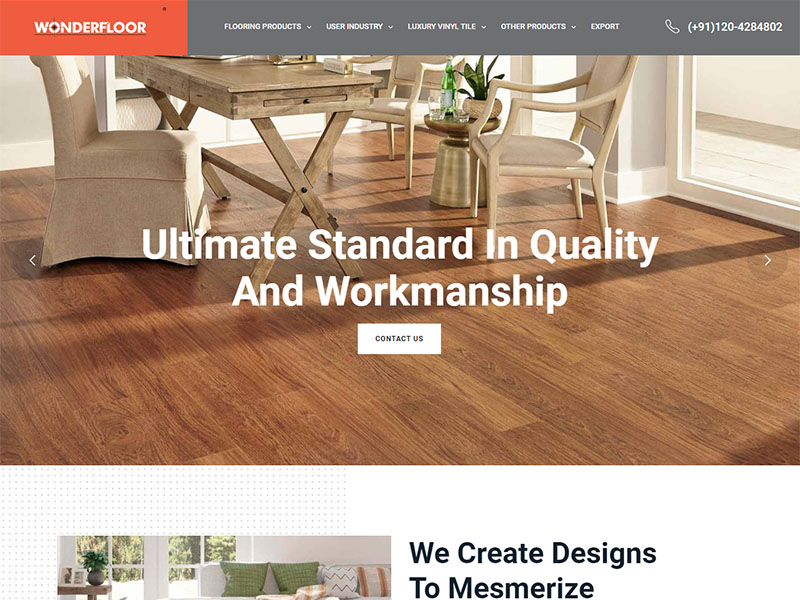CCCI Website Development
- event_available 18-07-2023
Introduction:
This case study focuses on the development of the official website for the Center for Communication and Change-India (CCCI) in India. The CCCI (Center for Communication and Change-India) is the sister organization of the Johns Hopkins Center for Communication Programs (CCP), which is part of the Johns Hopkins Bloomberg School of Public Health, a globally recognized premier health institution.
The website, located at https://www.ccci.org.in/, serves as a platform to provide information, resources, and support to member societies and individuals.
Goals:
1. Enhance Communication: The primary goal of the website was to improve communication between the CCCI and its member societies, as well as between the member societies themselves. The website aimed to facilitate the sharing of information, announcements, and updates.
2. Provide Resources: The website needed to serve as a central repository of resources for cooperative housing societies. It aimed to provide guidance, documents, templates, and other relevant materials to help societies manage their operations effectively.
3. Foster Collaboration: The website aimed to foster collaboration and knowledge-sharing among cooperative housing societies. It intended to provide discussion forums, event listings, and networking opportunities to facilitate interaction and cooperation between organizations.
Design and Development Process:
1. Requirements Gathering: The development team collaborated with the CCCI stakeholders to gather detailed requirements. They identified the target audience, content structure, functionalities, and design preferences for the website.
2. Wireframing and Design: Based on the requirements, the team created wireframes and design mockups to visualize the website's layout, navigation, and overall aesthetics. They ensured the design was user-friendly and aligned with CCCI's branding guidelines.
3. Front-end Development: The website was developed using modern web technologies such as HTML, CSS, and JavaScript. The front-end development focused on implementing the design, responsiveness, and interactivity of the website.
4. Back-end Development: A content management system (CMS) was chosen to empower the CCCI team to manage and update the website content easily. The back-end development involved integrating the chosen CMS, developing custom modules, and implementing database functionalities.
5. Content Creation: The CCCI team provided the necessary content, including text, images, videos, and documents. The development team optimized the content for search engine visibility and usability.
6. Testing and Quality Assurance: The website underwent rigorous testing to ensure functionality across different browsers, devices, and screen sizes. The team performed tests for usability, performance, security, and compatibility.
7. Deployment and Launch: Once the website passed all the necessary tests and received approval from the CCCI team, it was deployed to a hosting server and made live for public access.
Features and Functionality:
1. Home Page: The home page provided an overview of CCCI's mission, featured news, and highlighted upcoming events.
2. Information Sections: The website included sections dedicated to different aspects of cooperative housing societies, such as governance, legal guidelines, financial management, and maintenance.
3. Resources and Downloads: The website offered a comprehensive collection of resources, including documents, templates, and guides that societies could access and download.
4. Discussion Forums: Interactive discussion forums allowed members to exchange ideas, seek advice, and discuss relevant topics related to cooperative housing societies.
5. Membership Registration: The website provided an online membership registration form for societies interested in joining the CCCI.
6. Event Calendar: A centralized event calendar showcased upcoming workshops, seminars, and conferences related to cooperative housing societies.
7. Contact and Support: Contact information and a support portal were available to help users get in touch with the CCCI team for queries, assistance, or feedback.
Conclusion:
The development of the CCCI website successfully achieved its goals of enhancing communication, providing resources, and fostering collaboration among cooperative housing societies. The website serves as a valuable platform for information dissemination and community building within the cooperative housing sector in India.











